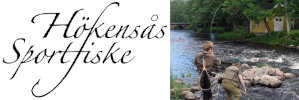Användarmeny
Common bream ( "Braxen") Overview
"Braxen") Overview

Common bream - Abramis brama
The fish is silver gray, but older individuals can get a light bronze tone. The fins are dark. As a youngster, the bream is very similar to the closely related birch, but the birch has a larger eye that is closer to the nose than the bream does. A rule of thumb is that the distance between the eye and the tip of the nose is greater than the diameter of the eye in the bream, but smaller in the birch.
Björknan's mountains are also larger. However, it can be very difficult to distinguish these species as they sometimes hybridize.
Population
European southern border runs in the Alps and the south of France. To the east are the front Aral Sea. In Scandinavia, the general in Denmark, southeastern Norway, up to central Sweden and along the Norrland coast and in southern and central Finland. It also goes out into the northern and eastern Baltic brackvatte
Size and growth
The bream is a shoal and demersal fish that lives in lakes and slow-flowing watercourses. Young fish are mainly plankton eaters, while older ones mainly feed on insect larvae and other benthic animals, which they suck up from the bottom with their extendable mouth.
The bream plays during spring and early summer in shallow water. The female can lay up to a total of 300,000 eggs on several occasions. The eggs, which are barely 2 millimeters in size, hatch after 1 to 2 weeks. The fish becomes sexually mature at 3–6 years of age. However, fish from small populations can be significantly older.
Record size
The Swedish sport fishing record is 8,340 grams and was 80 cm long, in Rögle Dammar in Skåne. The largest bream that has been caught in Sweden in professional gear weighed 9.2 kilos and was 82 cm long; it was caught in Ringsjön in Skåne.
Fishing tips
During the summer, you can practice successful bream angling with a light tackal bait with worm or corn, or both, so-called "cocktail". Even "casters" (pupated maggots) seem to be a good bait.
[Source: Wikipedia]
Most efficient fishing methods
Information below is based upon thousands of real catch reports from the past two years.Spring
|





